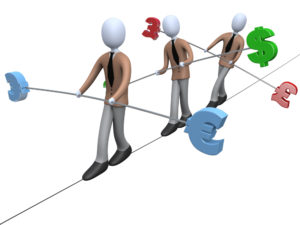
Frank Hyneman Knight
1885-1972
Frank H. Knight was one of the founders of the so-called Chicago school of economics, of which milton friedman and george stigler were the leading members from the 1950s to the 1980s. Knight made his reputation with his book Risk, Uncertainty, and Profit, which was based on his Ph.D. dissertation. In it Knight set out to explain why “perfect competition” would not necessarily eliminate profits. His explanation was “uncertainty,” which Knight distinguished from risk. According to Knight, “risk” refers to a situation in which the probability of an outcome can be determined, and therefore the outcome insured against. “Uncertainty,” by contrast, refers to an event whose probability cannot be known. Knight argued that even in long-run equilibrium, entrepreneurs would earn profits as a return for putting up with uncertainty. Knight’s distinction between risk and uncertainty is still taught in economics classes today.
Knight made three other important contributions to economics. One is The Economic Organization, a set of lecture notes originally published in 1933. In it he laid out the circular flow model of the economy and emphasized that investments will be made until the returns to investments in each use are equal at the margin. These elements still survive in textbooks today.
Knight’s famous article “Some Fallacies in the Interpretation of Social Cost,” in which he took on arthur pigou’s view that congestion of roads justified taxation of roads, is another of his contributions to economics. Knight showed that if roads were privately owned, road owners would set tolls that would reduce congestion. Therefore, no government intervention was required.
Knight’s final contribution is his work on capital theory in the 1930s. Knight criticized eugen von böhm-bawerk’s view that capital could be measured as a period of production, and is widely thought to have won the debate over the Austrian concept of capital (see austrian school of economics).
But Knight was much more than an economist. He was also a social philosopher, and most of his writings are in social philosophy rather than technical economics. A strong believer in freedom and a strong critic of social engineering, Knight worried that freedom would be undermined by increases in monopoly and income inequality. George Stigler tells of Milton Friedman challenging Knight’s view that inequality would increase, and Knight’s relenting, only to take the same position at the next lunch.
Knight often despaired at the general public’s inability to understand even simple economic truths. In his 1950 presidential address to the American Economic Association, Knight said:
Of late I have a new and depressing example of popular economic thinking, in the policy of arbitrary price-fixing. Can there be any use in explaining, if it is needful to explain, that fixing a price below the free-market level will create a shortage and one above it a surplus? But the public oh’s and ah’s and yips and yaps at the shortage of residential housing and surpluses of eggs and potatoes as if these things presented problems any more than getting one’s footgear soiled by deliberately walking in the mud.
Interestingly, though, Knight was one of the signers of a 1946 letter to the New York Times urging that the price controls imposed during World War II be continued.1
Knight was an economics professor at the University of Chicago from 1927 until 1955, after which he was an emeritus professor until his death.
About the Author
David R. Henderson is the editor of The Concise Encyclopedia of Economics. He is also an emeritus professor of economics with the Naval Postgraduate School and a research fellow with the Hoover Institution at Stanford University. He earned his Ph.D. in economics at UCLA.
Selected Works
Footnotes
Related Entries
Related Links
Ross Emmett, Annotated Bibliography of Frank Knight, at Econlib.
Ross Emmett, A Century of Risk, Uncertainty, and Profit, a Liberty Classic at Econlib, December 3, 2018.
Peter Boettke, The Role of the Economist in a Free Society: Mises to Knight, at Econlib, July 1, 2019.
Morgan Rose, Risk versus Uncertainty, at Econlib, November 5, 2001.
John Kay and Mervyn King on Radical Uncertainty, an EconTalk podcast, August 3, 2020.
Lars Peter Hansen on Risk, Ambiguity, and Measurement, an EconTalk podcast, June 30, 2014.
Dan Klein in Knowledge and Coordination, an EconTalk podcast, December 19, 2011.
